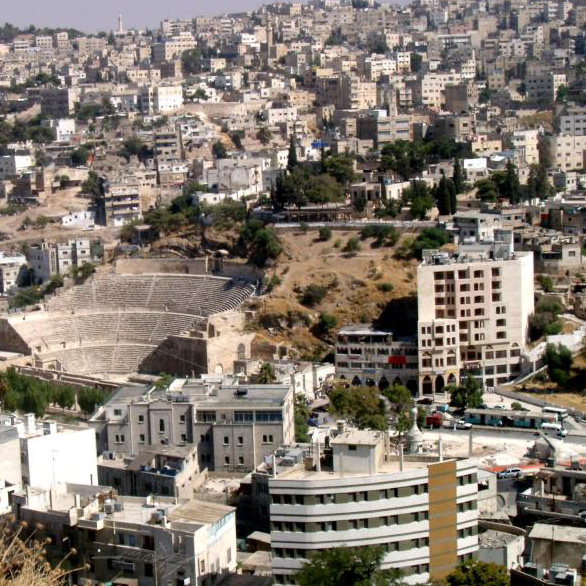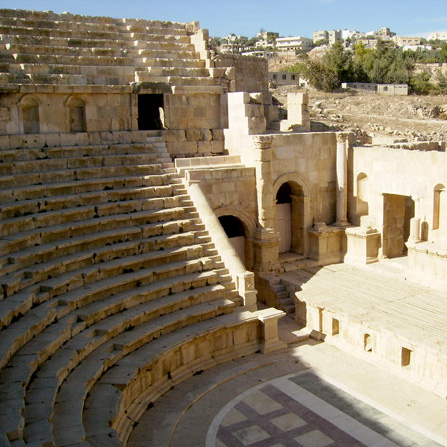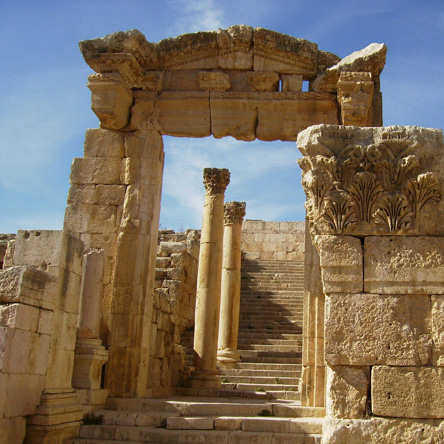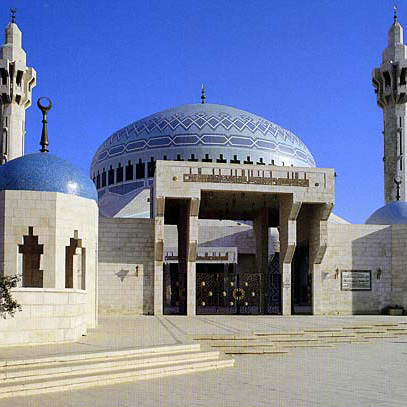Q1 figures indicate economic upturn
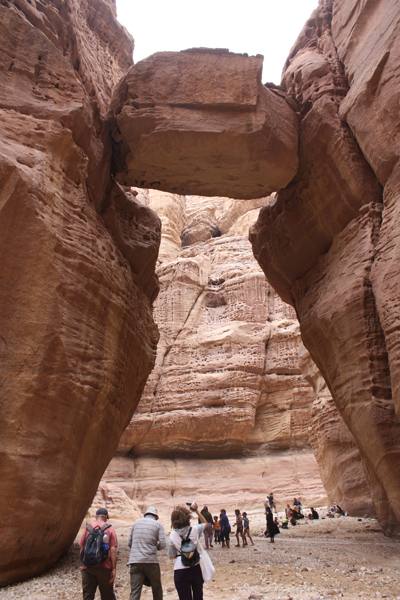
Tourists take pictures near the southern Dead Sea last week. Tourism revenues rose by 39 per cent in the first quarter of this year, while the number of foreign visitors increased by 20 per cent (Photo by Taylor Luck)
By Omar Obeidat
AMMAN –– Officials and economists are optimistic about Jordan’s economic performance based on this year’s first quarter figures and predict that growth rates may exceed 4 per cent in 2010.
According to official figures, various sectors have improved significantly during the first three months of 2010, compared to the same period of last year.
For instance, investments benefiting from incentives stipulated in investment laws increased by 174.4 per cent to JD686 million during the first quarter, compared to JD250 million during the same period of 2009.
Official statistics also revealed that tourism revenues rose by 39 per cent in this period, while the number of foreign visitors to Jordan increased by 20 per cent.
Real estate trading also showed improvement, rising by 20 per cent to JD1.13 billion, compared to JD940 million during the first quarter of 2009.
Deputy Prime Minister and Minister of State Rajai Muasher told The Jordan Times that these figures indicate that the economy is responding to the government’s measures to reduce the budget deficit and address imbalances in public spending.
He predicted that growth will continue at the same pace or higher in the second quarter of this year, and said the government will conduct a detailed study on the impact of such positive indicators on the country as a whole.
Muasher referred to other positive economic indicators, such as a decline in public debt as a percentage of the gross domestic product (GDP) to 54.9 per cent, compared to 59.4 per cent at the end of 2009.
Local exports also grew by 3.6 per cent, and remittances of Jordanian workers abroad rose by 0.9 per cent, he noted.
Muasher outlined the net effects of government expenditure cuts of 17.6 per cent, saying that the budget now has a JD158 million surplus compared to a JD33 million deficit for the same period of last year.
According to economist Fahed Fanek, economic indicators of the first three months show that the Kingdom’s economy is recovering, despite a forecasted deficit of JD685 million. Last year’s budget deficit reached JD1.4 billion.
Private sector companies, particularly banks, are making higher profits than last year, he said.
Economist Yusuf Mansur expects the country’s GDP to exceed 4 per cent growth by the end of the first half of the year, but said a shortage of liquidity will prevent the economy from reaching 5 per cent growth for the entire year.
Despite positive indicators, Mansur said the government has not yet done enough to stimulate the economy, pointing to insufficient government pressure on banks to loosen their lending criteria.
“People were waiting for the government to do more to boost the economy, but nothing has been done, which forced individuals and private companies to work harder to enhance their economic situations,” Mansur said, adding that some local companies were forced to borrow from outside of Jordan.
Economist and banking expert Mefleh Aqel cautioned that while the positive figures achieved in the first quarter indicate that the economy is progressing, they do not necessarily mean a full recovery by the end of 2010.
“This year’s growth will not match that achieved in 2006 and 2007 as it will only be around 4 per cent,” he explained, adding that the stock market is still suffering and the volume of credit facilities is below expectations.
“The real estate sector has not fully recovered and our exports still face some competitive problems in terms of prices,” he noted.
Commenting on the surplus in the state budget, Aqel said the finance minister should explain whether the surplus achieved was because of real cuts in expenditure or due to postponing government spending on some projects.
Fanek noted that the surplus is only temporary, because income tax revenues usually increase in the first two months of every year as people tend to pay their taxes during this period to benefit from incentives.
However, Minister of Finance Mohammad Abu Hammour expects the economy to exceed 4 per cent growth, based on these first quarter figures.
The minister told The Jordan Times that initial figures indicate that the fiscal position for the first quarter is “much better” than that in the same period of 2009, noting that figures will be released early next week.
News
23.08.2021
Meeting with King Abdullah II of Jordan
12.06.2019
Cooperation Agreement Signed in Hashemite Kingdom of Jordan
Russian-Arabic Business Council
Всех заинтересованных в установлении и развитии сотрудничества с деловыми кругами стран Арабского Востока приглашаем обратиться в Российско-Арабский Деловой Совет по адресу:
109012 г. Москва, ул.Ильинка, 5/2
тел./факс + 7 (495) 929-02-55
тел. + 7 (495) 929-03-13/15/16
эл.почта: rads@tpprf.ru
сайт: www.rusarabbc.ru
